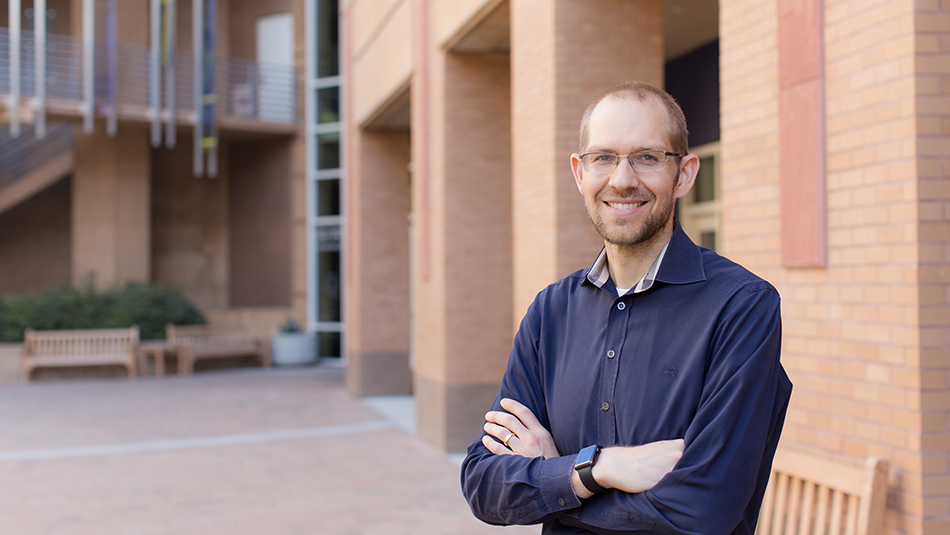
Stephen Schueller awarded $680,000 NIMH grant to develop innovative intervention strategies for anxiety and depression
The National Institute of Mental Health has awarded Stephen Schueller, assistant professor of psychological science, a three-year $680,000 grant to develop and evaluate a technology-based intervention that uses crowdsourcing to help provide evidence-based intervention strategies for anxiety and depression.
“People are using technology to learn things about themselves, and they’re trying to find out how technology might be able to help them,” Schueller says. “Building a platform to help people with mental health issues is one way to reach millions of people.”
He is teaming up with Mental Health America, a nonprofit organization addressing the needs of those living with mental illness, to build the platform.
Mental Health America offers an online screening questionnaire that 3,000 people visit daily. More than 5 million people have been screened in the past few years. They answer questions about various issues, such as depression, anxiety, psychosis, eating disorders and other mental health problems.
The platform, Schueller explains, “will connect to the screening portal to be able to understand what the issues are that people are suffering from and offer help through crowdsourcing.”
Only about 18 percent of the people who take part in the Mental Health America screening say they want a referral to a traditional face-to-face mental health provider, he says. “But, 50 percent say they want some sort of digital tool to help self-manage or address the symptoms that they’re experiencing. There are a lot of people who don’t want to see psychologists. They prefer digital support.”
Through technology, “we can expand the menu of options that are available to people to help them,” adds Schueller, who leads PsyberGuide, a project funded by One Mind that that helps people navigate the mental health app marketplace. “Interventions can be presented through apps or websites and people can use them and benefit. What’s exciting about this project is the potential for scalability. One in four people will experience a mental health issue in their life so there’s this huge population that could be mobilized to benefit from these things. A crowd-powered platform could be scaled without sacrificing efficacy, effectively harnessing the wisdom of millions to treat millions.”
— by Mimi Ko Cruz